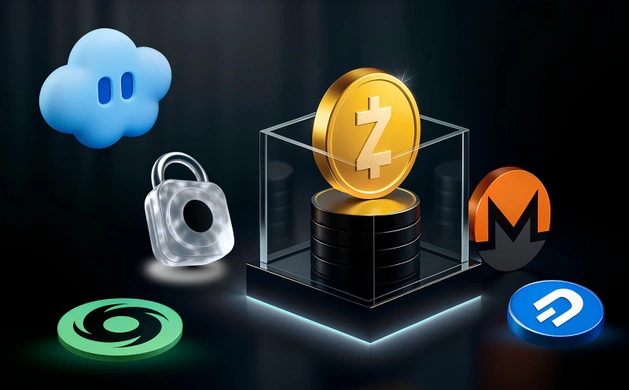What is Pendle Finance?
%2520(1).webp)
Summary: Pendle Finance enables independent trading of future yields through yield tokenization, allowing flexible strategies on Ethereum, Arbitrum, and other major chains.
Its custom AMM is optimized to minimize impermanent loss, with over $2.4 billion in assets, making it a critical platform for advanced yield management in DeFi.
What is Pendle Finance?
Pendle Finance is a decentralized protocol focused on yield tokenization. It offers users the ability to separate yield-bearing assets into principal (PT) and yield (YT) tokens. This design allows users to trade future yield as a standalone asset, providing options to lock in fixed returns or speculate on variable yields.
Pendle operates on Ethereum, Arbitrum, BNB Chain, and Optimism, offering an AMM tailored for yield-bearing assets with minimal impermanent loss. With over $2.4 billion in total value locked, it enables seamless yield trading across major chains.
With rising demand for complex yield strategies, Pendle has become a DeFi leader, attracting retail and institutional interest. Its focus on yield trading aligns with key trends like liquid staking and ETH restaking, positioning Pendle as vital infrastructure for navigating these shifts.

How Does Pendle Finance Work?
Pendle Finance allows users to tokenize and trade future yield through a unique split of yield-bearing assets into Principal Tokens (PT) and Yield Tokens (YT). Here’s how it works:
- Yield Tokenization: Users deposit assets to receive PT (redeemable at maturity) and YT (providing yield until expiration), offering options for both fixed and variable yield strategies.
- Custom AMM: Pendle’s specialized AMM efficiently facilitates PT and YT trades with concentrated liquidity and dynamic pricing curves that adjust to yield changes, minimizing impermanent loss.
- Flash Swaps: Flash swaps let users easily rebalance positions, with bullish traders buying YT for higher yields or bearish traders shifting to PT for stability.
- Standardized Yield (SY): Pendle’s EIP-5115 SY standard wraps various yield-bearing tokens, streamlining integration and composability across DeFi platforms.
.webp)
Pendle Finance V2
In early 2024, Pendle Finance V2 introduced major upgrades for streamlined yield trading. By merging PT and YT pools into a single liquidity pool, V2 reduces capital fragmentation and enables flash swaps, allowing quicker, more flexible trades. Concentrated liquidity and dynamic AMM curves now adjust with yield rates, minimizing impermanent loss for providers.
Adopting the EIP-5115 Standardized Yield (SY) token standard enhances composability, wrapping different yield-bearing assets under a single interface. This makes it easier for other DeFi protocols to integrate with Pendle, fostering a more permissionless yield market across the ecosystem.
V2 also revamps $PENDLE tokenomics with vote-escrowed mechanics, giving holders greater utility. $PENDLE holders can earn protocol revenue, direct liquidity incentives, and receive boosted LP rewards, increasing engagement and aligning incentives within the protocol.

$PENDLE Token and Tokenomics
The $PENDLE token powers Pendle Finance, providing utility, governance, and incentive alignment for participants. Holders can lock $PENDLE to obtain vePENDLE, which grants governance rights, a share of protocol revenues, and control over liquidity incentives.
As of September 2024, all team and investor tokens are fully vested, increasing circulating supply through ecosystem incentives. Weekly emissions of 216,076 tokens decrease by 1.1% each week until April 2026, transitioning to a 2% annual inflation rate to maintain incentives.
This tokenomics structure is designed for balanced growth, rewarding $PENDLE holders while promoting long-term sustainability and governance participation, making it core to Pendle’s value proposition in DeFi.
%2525201.webp)
Pendle Finance Founder
Pendle Finance was co-founded by TN Lee and Vu Nguyen. TN Lee, formerly Head of Business at Kyber Network, leads strategy and growth, while Vu Nguyen, the Chief Technology Officer, drives the protocol’s technical development.
Is Pendle Finance Safe?
Pendle Finance is generally considered safe, with multiple audits from trusted firms like Ackee and Dedaub, plus top wardens from Code4rena reviewing its smart contracts.
The platform holds a substantial Total Value Locked (TVL) of over $2 billion, indicating strong user confidence. Additionally, backing from Binance Labs further reinforces its credibility and commitment to security.
Bottom Line
Pendle Finance is a leading DeFi yield protocol, enabling better control over fixed and variable returns. With an optimized AMM, the EIP-5115 standard for composability, and backing from Binance Labs, Pendle’s V2 upgrades in tokenomics and security cater to advanced yield strategies across Ethereum and Arbitrum.
Rigorous audits and strong institutional support further underscore its role as critical DeFi infrastructure for strategic yield management.
.webp)
Written by
Jed Barker
Editor-in-Chief
Jed, a digital asset analyst since 2015, founded Datawallet to simplify crypto and decentralized finance. His background includes research roles in leading publications and a venture firm, reflecting his commitment to making complex financial concepts accessible.

%20in%20Saudi%20Arabia.webp)
%2520(1).webp)

%2520(1).webp)
.webp)



